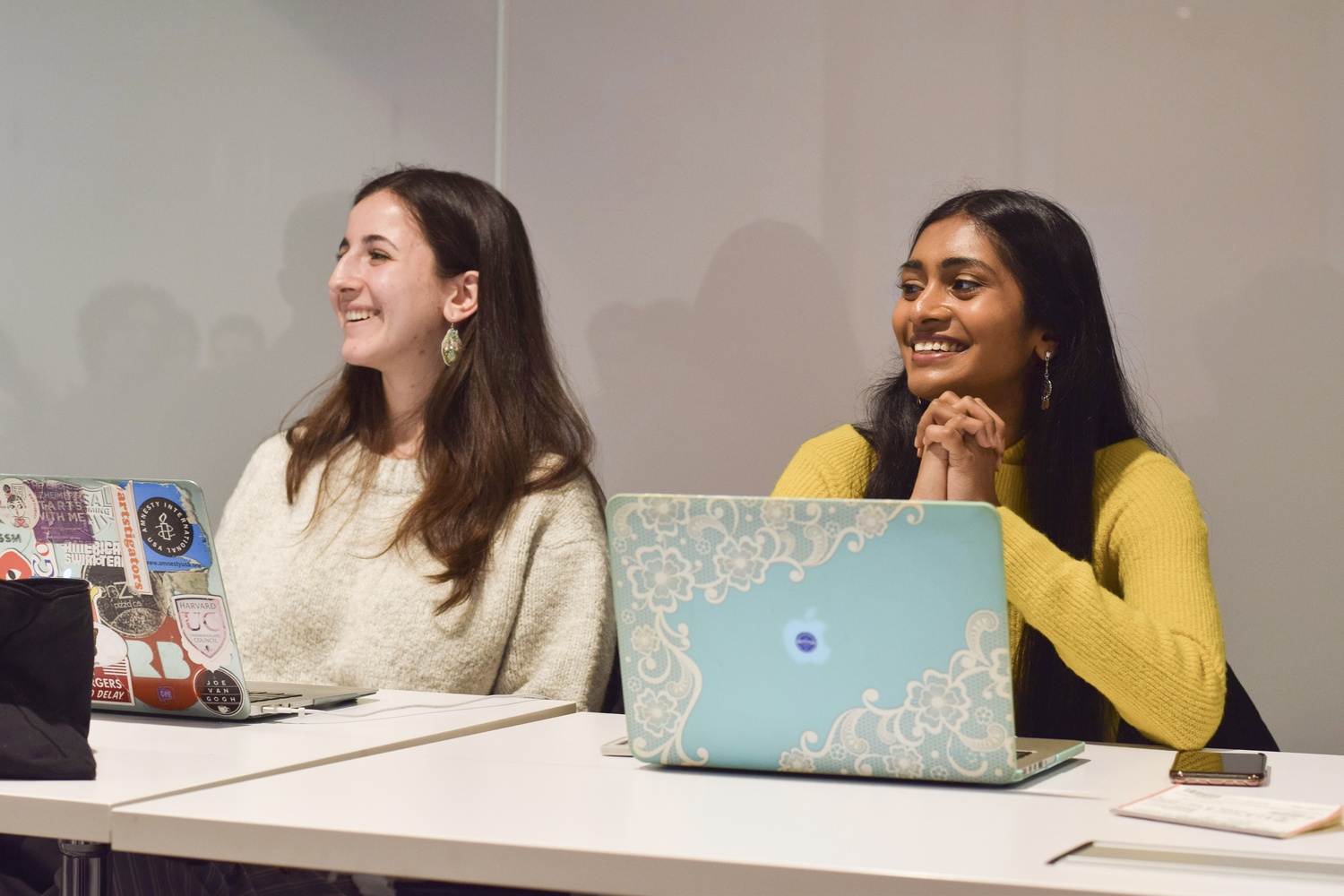
News
Harvard Grad Union Agrees To Bargain Without Ground Rules

News
Harvard Chabad Petitions to Change City Zoning Laws

News
Kestenbaum Files Opposition to Harvard’s Request for Documents

News
Harvard Agrees to a 1-Year $6 Million PILOT Agreement With the City of Cambridge

News
HUA Election Will Feature No Referenda or Survey Questions
UC Rules that President and VP Cannot Vote, Sponsor Legislation

The Undergraduate Council debated and voted on two proposals Sunday that, combined, rendered the president and vice president ineligible to propose legislation and vote, overturning more than 40 years of precedent.
UC members first questioned the president’s and vice president’s voting eligibility last week, when Cabot House Representative Brandon M. Martinez ’20 pointed out that the UC’s constitution only states that “members” can vote. Both the president and vice president are considered “executive officers,” not explicitly members.
The UC sought to clarify this ambiguity and first voted on Sunday to create a committee to interpret the constitution. After the UC then failed to pass a proposal that would deem the president and vice president members, the newly formed committee stepped in to strip the duo of their voting powers.
The UC president and vice president have been able to vote for at least the past 40 years, according to Treasurer Jack M. Swanson ’22, who examined past UC records.
The two pieces of legislation were part of a series of acts that the sponsors called the “Great Reform.”
The first proposal, dubbed the “Great Compromise,” specified the committee to interpret the constitution comprises the rules committee chair, the parliamentarian, and the secretary. The current rules committee chair Michael Y. Cheng ’22; parliamentarian Rachel L. Reynolds ’22, who is also a Crimson blog editor; and secretary Cade S. Palmer ’20, who is also a former Crimson sports chair, co-sponsored this piece of legislation along with Martinez.
The proposal passed 23-6-4.
The other piece of legislation, which designated the president and vice president as full members with voting powers, failed to pass with a vote of 27-0-7. Because 7 people abstained, the proposal could not pass. Any amendment to the UC’s constitution requires two-thirds of the entire council — 31 students — to vote either in favor of or against the legislation.
Many representatives said they voted for the proposal because they think the president and vice president need the ability to propose legislation in order to carry out the platform that they ran on.
Dunster House Representative Victor C. Agbafe ’19 said that the UC president and vice president have special meetings with administrators. Insight gained from these meetings can then influence the legislation they propose.
Some of the representatives who abstained said they believe the president’s and vice president’s ability to vote represents an imbalance in power.
Because the president and vice president lose their seats in their houses, they do not count towards the three representatives that each House typically receives. Some said this policy overrepresents the president’s and vice president’s houses on the Council.
Others countered the idea that enfranchising the president and vice president creates a power imbalance. They said the pair represent the student body at large because they were elected by the entire student body.
“The president and vice president are voted on by the entire student body,” Mather House Representative Sanika S. Mahajan ’21 said. “Their platform is held accountable to the entire student body.”
Some representatives also said they are concerned that a president could essentially receive two votes in the case of a tie because the president can both vote and break a tie.
Because the legislation failed, the committee to interpret the constitution made their first ruling. They decided that the president and vice president are not members of the council, codifying that the pair will be ineligible to vote on and propose legislation at future meetings. The president will still be able to break ties.
The other piece of the Great Reform, which would have delegated all powers not explicitly given to the members of the Executive Board to the general members of the UC, failed 7-19-7.
— Staff writer Kevin R. Chen can be reached at kevin.chen@thecrimson.com.
— Staff writer Laura C. Espinoza can be reached at laura.espinoza@thecrimson.com.
Want to keep up with breaking news? Subscribe to our email newsletter.
Most Read
- Trump Administration To Review Billions in Federal Funding to Harvard
- Fulbright Funding Freeze and Silence from Harvard Leaves Scholars with Questions
- I Was Hillel President. Trump Claims His Funding Cuts Help Jews — He’s Wrong.
- 17 Senators Call for Release of HMS Researcher Kseniia Petrova
- Garber Promises To ‘Engage’ With Federal Antisemitism Task Force After Funding Threats
